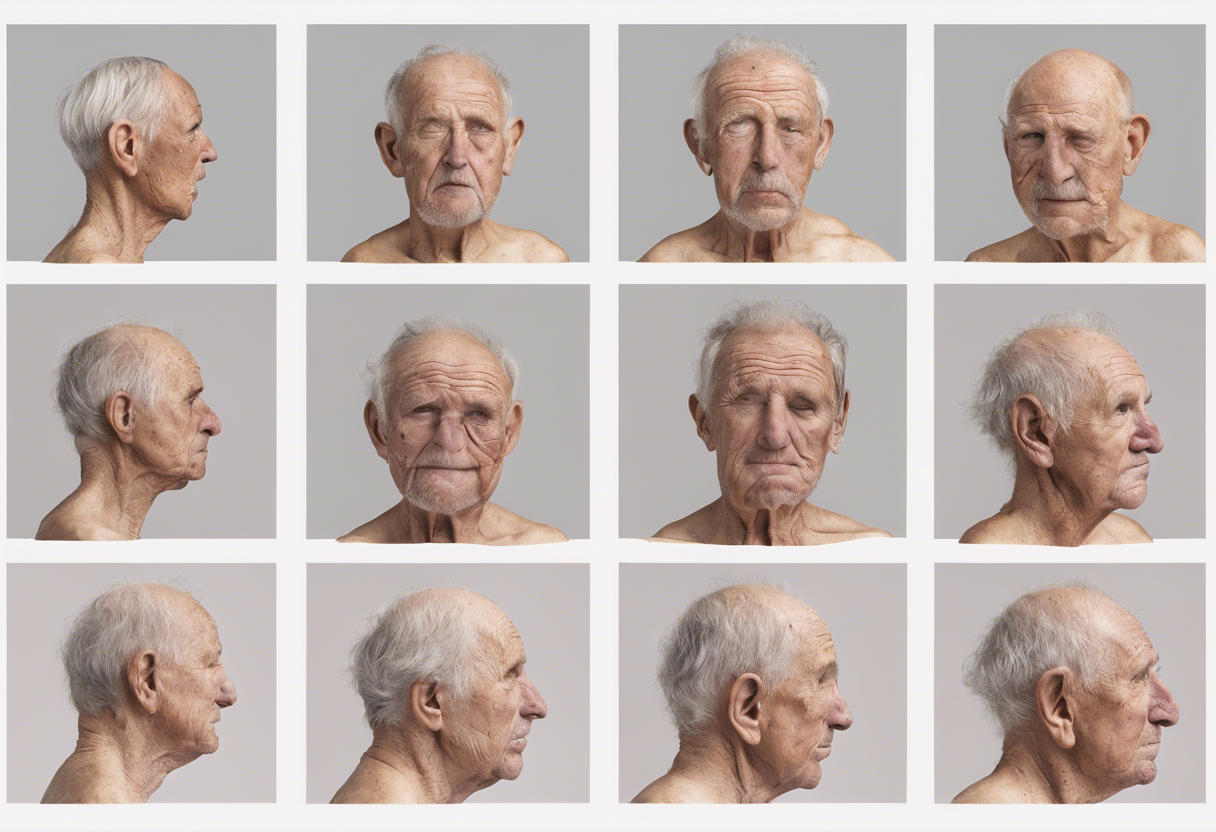As someone who has witnessed the impact of Lewy Body Dementia (LBD) on loved ones, I understand the importance of understanding this complex and progressive neurological disorder. With millions of people worldwide affected, it’s crucial to recognize the early signs and seek medical attention to manage symptoms and improve quality of life.
The Early Days: Understanding Normal Functioning
Before we dive into the seven stages of LBD, let’s take a moment to appreciate what normal cognitive and physical functioning looks like. Our brains process information quickly and efficiently, allowing us to think critically, solve problems, and easily remember events. Our physical bodies move with grace and coordination, enabling us to perform daily tasks efficiently. However, for individuals with LBD, these normal functions begin to decline, leading to a gradual and irreversible deterioration of cognitive and physical abilities.
The Subtle Shift: Identifying Mild Cognitive Impairment
The first stage of LBD is characterized by mild cognitive impairment (MCI). At this stage, individuals may experience subtle changes in their mental abilities, such as memory loss, confusion, and difficulty with problem-solving. These changes can be so slight that they may go unnoticed by family, friends, or even the individual themselves. As someone who has experienced MCI in a loved one, I understand the importance of recognizing these early signs and seeking medical attention.
Tips for recognizing MCI:
– Pay attention to memory loss and confusion
– Notice difficulty with problem-solving and communication
– Encourage medical evaluation and diagnosis
The Gradual Decline: Understanding Mild Dementia
As LBD progresses, individuals enter the stage of mild dementia. At this stage, cognitive and physical symptoms become more pronounced, making it difficult to perform daily tasks and maintain independence. Memory loss, confusion, and difficulty with communication are common symptoms of mild dementia. Individuals with mild dementia may struggle to find the right words, remember recent events, or follow instructions. They may also experience mood swings, anxiety, and depression. Physical symptoms can include tremors, rigidity, and difficulty with coordination and balance.
Tips for managing mild dementia:
– Encourage independence while providing support
– Use memory aids and communication tools
– Manage mood swings and anxiety with therapy and medication
The Challenging Phase: Navigating Moderate Dementia
Moderate dementia is the fourth stage of LBD, and it’s characterized by significant cognitive and physical decline. Individuals at this stage may have difficulty recognizing family and friends, remembering their address or phone number, or completing everyday tasks. Communication becomes increasingly challenging, and individuals may use gestures or pointing to convey their needs. Physical symptoms worsen, with increased tremors, rigidity, and difficulty with mobility and coordination. Caregivers play a vital role at this stage, providing emotional support, managing daily tasks, and ensuring the individual’s safety.
Tips for managing moderate dementia:
– Provide emotional support and validation
– Use non-verbal communication tools
– Manage physical symptoms with therapy and medication
The Critical Stage: Coping with Severe Dementia
Severe dementia is the fifth stage of LBD, and it’s characterized by severe cognitive and physical decline. Individuals at this stage may lose the ability to respond to their environment, communicate verbally, or control their movements. They may also experience increased agitation, aggression, and restlessness. Caregivers face significant challenges at this stage, as they must provide total care and support for the individual. Managing behavioral symptoms, ensuring nutrition and hydration, and maintaining the individual’s physical health become top priorities.
Tips for managing severe dementia:
– Provide total care and support
– Manage behavioral symptoms with therapy and medication
– Ensure nutrition and hydration
The Final Phase: Understanding Very Severe Dementia
The sixth stage of LBD is characterized by very severe dementia, where individuals experience near-total cognitive and physical decline. They may be unable to respond to their environment, communicate verbally, or control their movements. This stage is often the most challenging for caregivers, who must provide constant care and support.
Tips for managing very severe dementia:
– Provide constant care and support
– Use non-verbal communication tools
– Manage physical symptoms with therapy and medication
The Final Journey: Preparing for End of Life
The seventh and final stage of LBD is the end of life. This stage is a complex and emotional time for caregivers and loved ones as they prepare to say goodbye to their loved ones. It’s essential to prioritize comfort care, pain management, and emotional support during this stage.
Tips for preparing for end of life:
– Prioritize comfort care and pain management
– Provide emotional support and validation
– Encourage closure and goodbye
Conclusion
Lewy Body Dementia is a complex and progressive condition that affects millions of people worldwide. Understanding the 7 stages of LBD



